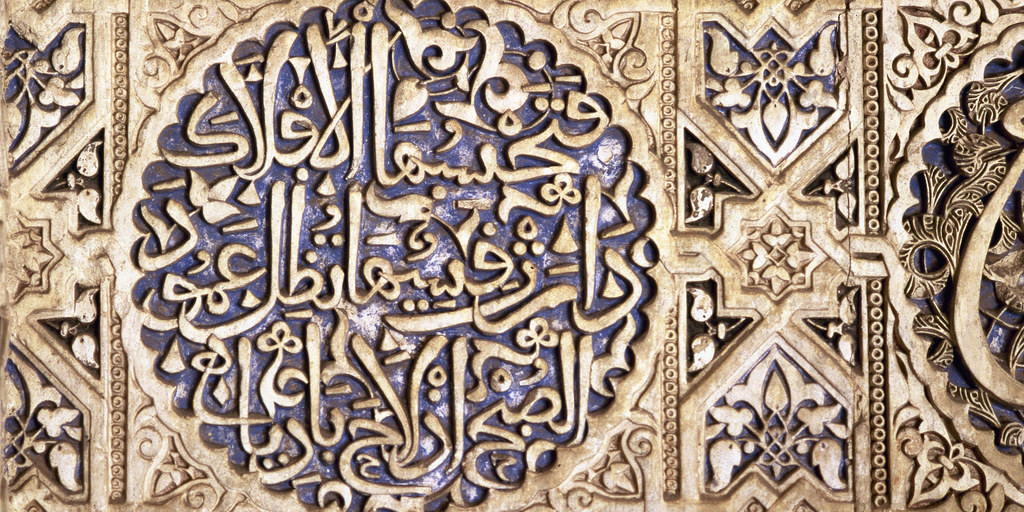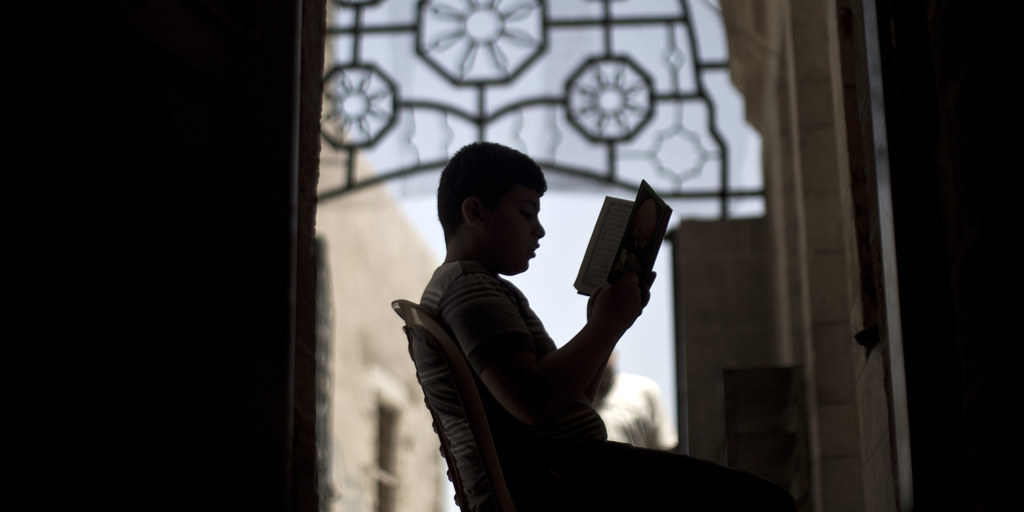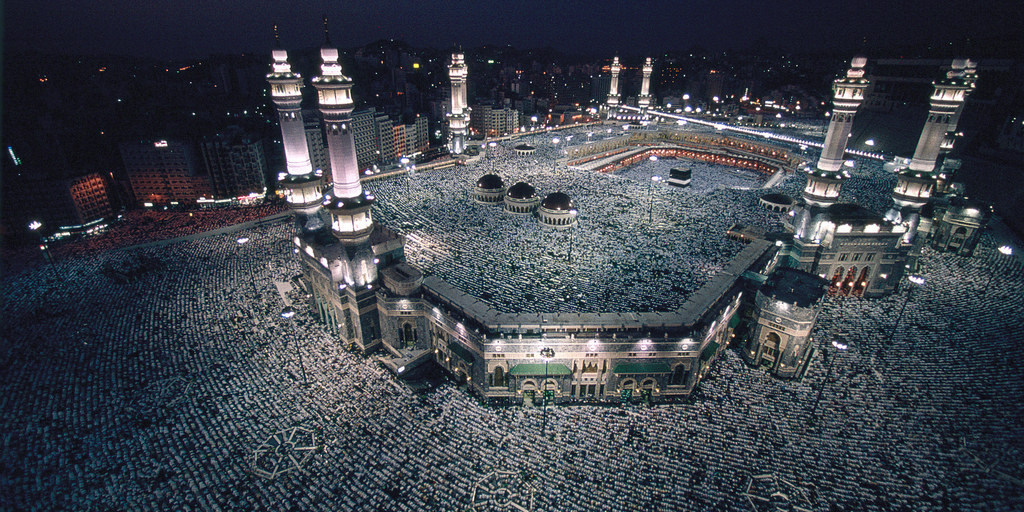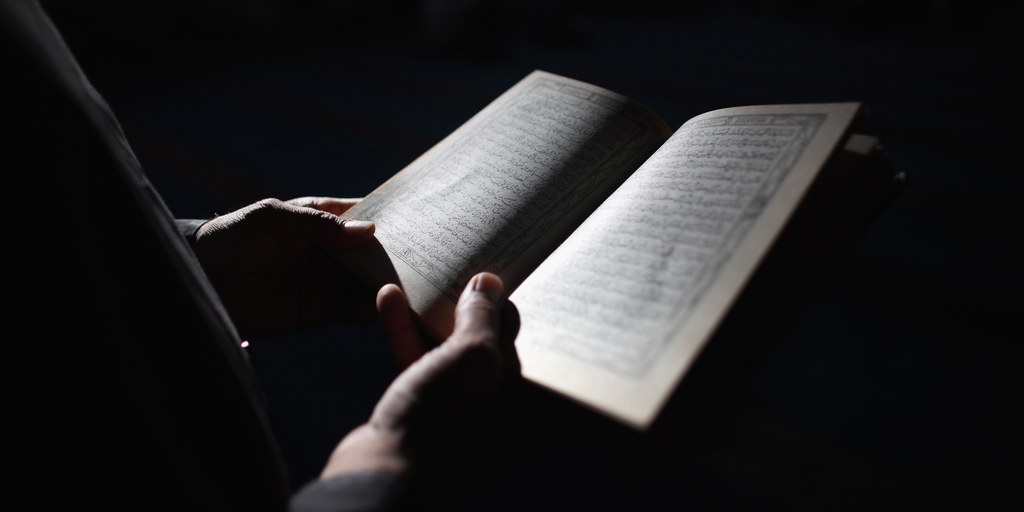
1. I always started off with the best of intentions – but I fell short of meeting them.
Before Ramadan began, I made a list of everything I wanted to achieve. I wanted to read through the whole Qur'an – and not just read it, but take time to understand the meanings in the process. I also wanted to make sure I prayed regularly, and on time, while abstaining from "luxuries" such as television and music.
The reality was a little different, as I downsized these goals considerably as the month went on. Much of that had to do with long working hours, the daily commute, and the general fatigue that comes with working during the holy month. Naturally, that became worse during the hotter days of summer – where I wanted to do little more than sleep until iftar.
Moreover, personal digressions also got the better of me. To pass time at work and travelling, I was usually plugged into Spotify or Netflix – sometimes, more often than I should have been. Additionally, as my work schedule became more intense, I found myself missing prayer times, or even rushing through them.
I had to acknowledge that my own flaws limited how much I could realistically achieve during Ramadan. So rather than reading through the entire Qur'an, I chose to read at least one, shorter passage each night. I also tried to listen to verses while commuting to work, reading the English translation on my phone at the same time.
For me, this Ramadan was about "niyyah", or the intention of wanting to improve myself as a Muslim. The concept is a core principle in Islam, and although it can be interpreted in different ways, it reflects a Muslim's desire to be sincere in worship, regardless of how much they actually pray.
2. Always have suhoor, even if it’s a bit uncomfortable.
This year's fast was tough – early rises (often at around 2 –3AM) and late finishes (usually around 9.20-9.30PM).
I've been fasting since I was 7 years old, and I never ate the suhoor meal, mostly out of laziness and choosing to sleep instead. But with work increasingly meaning time spent travelling and meeting people, these meals were fundamental in order to function.
There are plenty of handy guides on what's best to eat and drink during this time, and I made a lot of mistakes, best summed up as "carbohydrates". Even so, without the morning meal, I'd have been operating at a much lower capacity, and grinding to a total halt by 3PM. But make no mistake, forcing yourself to eat and drink for the day, especially first thing in the morning, is tough – and what's worse is the inevitable bloated feeling nearly every Muslim will have in those precious couple of hours you have to rest before getting up again to go to work.
The most important thing: Drink a lot of water, at least a litre's worth. Dehydration is the worst.

3. Making small changes to my daily routine brought me a little closer to God.
I haven't been as observant of Islam in the past few years, so this Ramadan was an opportunity to explore my own beliefs and, inshallah, become a better practicing Muslim.
But rather than a huge wholesale transformation of my behaviour, I found that the smaller changes I made to my daily routine – things like listening to a Du'a (supplication) or reading a verse of the Qur'an in English – were helpful in helping me understand my faith a little bit more, especially as I felt I didn't have a solid grasp of it from my madrassa days.
There are some Muslims who dedicate themselves to studying the Qu'ran, and spending as much time at the mosque as possible during this month – something I couldn't quite manage to do. Sometimes that was down to work, but more often than not, it was because I felt a little intimidated being in a setting surrounded by people more observant and devout than I. Indeed, during the holiest month of the Islamic year, such outward displays of worship easily made me feel at times like a fraud, and in previous years, deterred me from going to the mosque completely.
But this year, after spending 30 minutes of my day focusing on understanding my religion better, I realised that although there was still a lot about my faith I needed to learn, I was also more excited than ever to learn about it. I think there's a lot of value in that.

4. You can benefit from Ramadan, even if you aren’t that religious.
While Ramadan is primarily a religious event, there are things that you can learn even if you aren't devout.
Fasting for up to 19 hours a day showed how far I could push myself in terms of self-discipline, but also made me realise the extent to which we overconsume. Being accustomed to eating and drinking throughout the day without a care in the world, the knowledge that you can, in reality, live on very little, naturally makes you much more aware of the benefits that come with privilege. That takes all sorts of forms, whether it's the ability to have more than one meal a day or even something as small as being able to eat with your family every evening.
This Ramadan was not just an opportunity to try be more religiously observant, but also a chance to spend more time with my family – whether that was going to the mosque for evening prayers with my dad, or simply eating my mum's chicken curry with the family. It's during this month that I'm most grateful for how lucky I am.

5. Fasting can play around with your emotions. A lot.
The hardest part of Ramadan isn't necessarily hunger or thirst, but how those things can make you feel like you aren't in control of yourself.
Throughout this month, it's happened to me on several occasions, and while I've usually been able to control it, there are times when certain emotions – mostly anger and anxiety – can be really overwhelming. There was one day during which for reasons still not fully known to me, I had been feeling down. By the time I got home from work, it was so overwhelming that all I could do was curl up on my bedroom floor and try my best not to burst into tears.
It was one of the strangest experiences of this Ramadan – but something that's more common than you'd think among many Muslims.
There were other times where, through a deadly mix of hunger, thirst, and heat exhaustion, I would get irrationally angry at mundane things: late trains, dogs barking outside, or even, at one point, a dripping tap.
And it wasn't just me, either – I spoke to several other Muslims who told me about their struggle to manage their moods during the fasting period. While most said that prayer was vital as a way of reminding themselves why they were fasting, others said that it was probably the biggest challenge they faced during Ramadan – and that by overcoming it, they had passed a test set by God.
One of the biggest lessons I learned this Ramadan is how easily I used food and drink (mostly coffee) to temporarily control my emotions, and how easy is to lose control. Sure, the total abstention pushed me to my limits, but this month taught me that I do have the ability to manage my emotions, especially around other people.
6. Everyone’s experiences during Ramadan are different – and that should be respected.
To many, Ramadan revolves around total abstention. Food and drink are off the table, sure, but some also abstain from television, music, socialising, and even reading things that aren't Islamic texts.
But Ramadan is different for different people. Throughout this month, I've spoken to Muslims who choose not to fast, those who are unable to (due to both physical and mental illnesses), as well as newly converted Muslims, who intermittently fast. Some also choose to commemorate Ramadan in other ways, such as giving generously to charity, volunteering in their local communities, and taking time off work to help the needy.
There are always disputes on how Ramadan should be observed, what prayers should be recited and how to fast according to the Qur'an and sunnah. But in the UK, Muslims from all backgrounds and communities observe the holy month in unique ways.

7. Don’t get intimidated by others' Ramadan habits (especially as portrayed on social media).
Muslims are really active on Twitter and Facebook. I have become accustomed to posts citing Qur'an verses and messages from the hadiths popping up on my timeline. Social media has become an arena for giving dawah (proselytising) to non-Muslims curious about Islam and Muslims. During Ramadan, this ratchets up several gears.
And while that's a great thing, I have to admit that the increased frequency of these posts affected me – and often not for the reasons those posts set out to do. This month I have seen posts warning that not praying with the "right intentions" would invalidate my fasts, while others claim only certain du'as would be accepted by God for Ramadan prayers.
Worse still, close friends of mine who are more devout than I am, would often write about how they'd spent entire nights in prayer, or claim that they had been "spiritually blessed" in a way that felt unachievable for me. I was constantly comparing myself to friends, and coming up short. There were times when I felt like giving up on Ramadan.
But Ramadan is an individual experience. It should be centered on personal development, as much as devotion to God – something I only realised in this, the final week of Ramadan, after speaking honestly to other Muslim friends, who said they had also felt the same way.
As one imam told me this month, after I brought up how I didn't feel my fasting was having much effect on my spirituality: "Having one night where you really believe and are focused on your worship is a thousand times better than spending a month following rituals and praying as if you're a drone."

